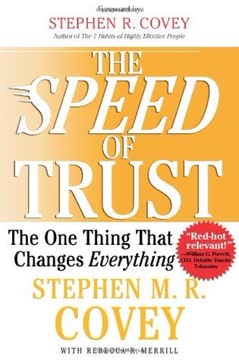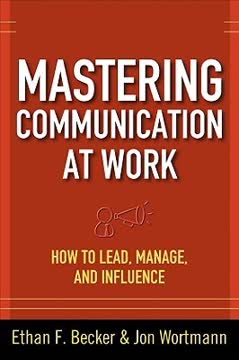Key Takeaways
1. Effective communication bridges the interpersonal gap
Communication: Humanity's Supreme Achievement
Communication is vital. It is the cornerstone of human interaction and personal development. Effective communication allows us to express our thoughts, feelings, and needs, while also understanding others. It forms the basis of all relationships, from personal to professional.
Barriers to communication are common. Many people struggle with expressing themselves clearly or listening attentively. These barriers can lead to misunderstandings, conflicts, and feelings of isolation. Some common barriers include:
- Judging or criticizing others
- Offering unsolicited advice
- Avoiding the other person's concerns
- Using excessive or inappropriate questioning
Overcoming these barriers is crucial. By developing better communication skills, we can:
- Build stronger, more meaningful relationships
- Reduce conflicts and misunderstandings
- Enhance personal and professional success
- Improve overall life satisfaction and mental well-being
2. Overcome communication barriers for meaningful interactions
Roadblocks are high-risk responses—that is, responses whose impact on communication is frequently (though not inevitably) negative.
Identify and avoid roadblocks. Common communication roadblocks include criticizing, name-calling, diagnosing, praising evaluatively, ordering, threatening, moralizing, excessive questioning, advising, diverting, logical argument, and reassuring. These responses often hinder effective communication and can damage relationships.
Replace roadblocks with effective responses. Instead of using these counterproductive methods, try:
- Active listening
- Empathetic responses
- Open-ended questions
- Reflective statements
- Nonverbal cues of attention and understanding
Create a supportive communication environment. Foster an atmosphere where people feel safe to express themselves without fear of judgment or ridicule. This involves:
- Showing genuine interest in others' perspectives
- Suspending judgment and avoiding immediate evaluation
- Encouraging open and honest dialogue
- Acknowledging and validating others' feelings and experiences
3. Master the art of reflective listening for deeper understanding
Listening is more than merely hearing.
Develop active listening skills. Reflective listening involves fully engaging with the speaker and demonstrating understanding. Key components include:
- Attending: Give your full attention through appropriate body language and eye contact
- Following: Use minimal encouragers and attentive silence to show you're engaged
- Reflecting: Paraphrase content, reflect feelings, and summarize meanings
Practice empathetic understanding. Strive to understand the speaker's perspective and emotions, not just the words they're saying. This involves:
- Putting yourself in their shoes
- Recognizing and acknowledging their feelings
- Avoiding the urge to judge or offer immediate solutions
Improve your reflecting skills. Enhance your ability to mirror back the speaker's thoughts and feelings by:
- Focusing on the most important aspects of their message
- Using accurate feeling words to capture emotions
- Providing concise and relevant responses
- Varying your reflection techniques to maintain engagement
4. Develop assertiveness to protect personal boundaries
Assertion training does not teach that we should avoid trying to influence other people's values. It does teach that a three-part assertion on values issues is never appropriate.
Understand the importance of assertiveness. Assertiveness is the ability to express your thoughts, feelings, and needs clearly and respectfully while maintaining respect for others. It's crucial for:
- Protecting your personal space and rights
- Building self-esteem and confidence
- Fostering healthy relationships
- Achieving personal and professional goals
Learn the three-part assertion message. This effective method for assertive communication includes:
- Describing the behavior objectively
- Expressing your feelings about the behavior
- Explaining the tangible effect on your life
Practice assertive body language. Nonverbal cues are crucial in assertive communication:
- Maintain eye contact
- Use an open, relaxed posture
- Speak clearly and confidently
- Keep a neutral facial expression
5. Navigate conflicts with a collaborative problem-solving approach
Conflict is inevitably associated with creativity. Without conflict there is no major personal change or social progress.
Understand the nature of conflict. Conflict is a natural and inevitable part of human interaction. It can be:
- A source of growth and positive change
- An opportunity for deeper understanding
- A catalyst for creativity and innovation
Use the conflict resolution method. This approach helps manage the emotional aspects of conflict:
- Treat the other person with respect
- Listen until you "experience the other side"
- State your views, needs, and feelings briefly
Apply collaborative problem-solving. This method focuses on finding mutually beneficial solutions:
- Define the problem in terms of needs, not solutions
- Brainstorm possible solutions without evaluation
- Select the best solution that meets both parties' needs
- Plan implementation and follow-up
6. Cultivate genuineness, empathy, and nonpossessive love
Genuineness means being what one really is without front or façade.
Embrace authenticity. Genuineness involves being honest and open about your feelings, needs, and ideas. It requires:
- Self-awareness: Understanding your own thoughts and emotions
- Self-acceptance: Embracing all aspects of yourself, including flaws
- Self-expression: Sharing your true self with others responsibly
Develop empathy. Empathy is the ability to understand and share the feelings of another. To cultivate empathy:
- Practice active listening
- Suspend judgment
- Imagine yourself in the other person's situation
- Respond with understanding and compassion
Express nonpossessive love. This involves accepting, respecting, and supporting others without trying to control or change them. Key aspects include:
- Acceptance: Embracing others as they are, without conditions
- Respect: Honoring others' right to self-direction and privacy
- Support: Encouraging growth and independence in others
7. Practice self-awareness and self-acceptance for authentic relationships
Guard your inner spirit more than any treasure, for it is the source of life.
Cultivate self-awareness. Understanding your own thoughts, feelings, and motivations is crucial for effective communication and relationships. Techniques for improving self-awareness include:
- Mindfulness meditation
- Journaling
- Seeking feedback from others
- Regular self-reflection
Embrace self-acceptance. Accepting yourself, including your flaws and imperfections, is essential for genuine relationships. This involves:
- Recognizing your inherent worth as a person
- Acknowledging your strengths and weaknesses
- Letting go of unrealistic expectations
- Practicing self-compassion
Foster authentic relationships. By developing self-awareness and self-acceptance, you can create more genuine connections with others. This leads to:
- Deeper, more meaningful relationships
- Increased trust and intimacy
- Better communication and understanding
- Greater overall life satisfaction
Last updated:
FAQ
What's People Skills by Robert Bolton about?
- Focus on Communication: The book emphasizes the importance of effective interpersonal communication in both personal and professional settings.
- Skill Clusters: It outlines five essential skill clusters: listening, assertion, conflict-resolution, collaborative problem-solving, and skill selection.
- Personal Growth: Encourages readers to recognize their capacity for change and personal growth through improved communication.
Why should I read People Skills by Robert Bolton?
- Improve Relationships: The book provides tools to enhance relationships by teaching effective communication techniques.
- Practical Techniques: Offers actionable advice that can be applied immediately in everyday situations.
- Address Loneliness: Discusses how effective communication can alleviate feelings of loneliness and foster deeper connections.
What are the key takeaways of People Skills by Robert Bolton?
- Listening is Crucial: Effective listening involves understanding and responding to the speaker's feelings and content.
- Assertion is Essential: Distinguishes assertiveness from aggression and submission, allowing for respectful expression of needs.
- Conflict Management: Provides strategies for managing and resolving conflicts constructively.
What are the best quotes from People Skills by Robert Bolton and what do they mean?
- “In communication, skills alone are insufficient.”: Emphasizes the importance of attitudes like empathy and genuineness in effective interactions.
- “You can’t be human alone.”: Highlights the necessity of human interaction for personal growth and well-being.
- “The real things never get said.”: Reflects the importance of open communication in fostering intimacy and understanding.
How does People Skills by Robert Bolton define effective listening?
- Beyond Hearing: Effective listening involves actively engaging with the speaker's message, both verbally and nonverbally.
- Skill Clusters: Includes attending, following, and reflecting skills to enhance interpersonal communication.
- Reflective Responses: Emphasizes mirroring back the speaker's feelings and content to foster understanding.
What is the three-part assertion message in People Skills by Robert Bolton?
- Nonjudgmental Description: Involves a clear, objective description of the behavior that needs to change.
- Disclosure of Feelings: Requires expressing feelings about the behavior to convey the importance of the issue.
- Clarification of Effects: Explains the tangible effects of the behavior on the asserter's life.
What are the barriers to effective communication discussed in People Skills by Robert Bolton?
- Common Spoilers: Includes judging, name-calling, diagnosing, and excessive questioning.
- High-Risk Responses: These barriers can trigger defensiveness and diminish self-esteem.
- Emotional Filters: Listeners often have emotional filters that distort their understanding of the speaker's message.
How can I improve my reflective listening skills according to People Skills by Robert Bolton?
- Avoid Faking Understanding: Ask for clarification to ensure accurate comprehension of the speaker's message.
- Focus on Feelings: Pay attention to the emotional content and reflect it back to the speaker.
- Vary Your Responses: Use a mix of paraphrasing, summarizing, and minimal encourages to keep the conversation engaging.
How does People Skills by Robert Bolton suggest handling conflicts?
- Conflict is Inevitable: Recognizes conflict as a natural part of relationships that can be constructive if managed well.
- Resolution Methods: Provides strategies like reflective listening and collaborative problem-solving.
- Emotional Components: Emphasizes acknowledging and validating feelings to facilitate effective communication during disagreements.
How does People Skills by Robert Bolton suggest handling defensive responses during assertions?
- Expect Defensiveness: Being prepared for defensive reactions helps the asserter remain calm and focused.
- Reflective Listening: Acknowledge the other person's feelings to reduce defensiveness.
- Reasserting Needs: Restate the original assertion to ensure that needs are communicated effectively.
What is the significance of body language in People Skills by Robert Bolton?
- Nonverbal Communication: Body language often conveys more meaning than words.
- Reading Nonverbals: Understanding the context and typical behaviors helps interpret nonverbal cues accurately.
- Leakage of Emotions: Body language can reveal true feelings, enhancing empathetic listening and understanding.
How can I apply the conflict resolution method from People Skills by Robert Bolton?
- Treat with Respect: Acknowledge the other person's perspective and feelings to set a positive tone.
- Listen and Reflect: Use reflective listening to ensure understanding before sharing your own viewpoint.
- State Your Needs: Clearly express your needs and feelings after addressing emotional components.
Review Summary
People Skills receives mostly positive reviews for its timeless and practical communication advice. Readers appreciate the thorough coverage of listening, assertion, and conflict resolution skills, along with practical examples. Some find it dense or outdated in parts, but many consider it essential reading for improving relationships. The book is praised for its scientific approach and real-world applications. Critics note repetition and outdated gender norms, but overall, readers find it valuable for personal and professional development.
Similar Books










Download PDF
Download EPUB
.epub digital book format is ideal for reading ebooks on phones, tablets, and e-readers.




